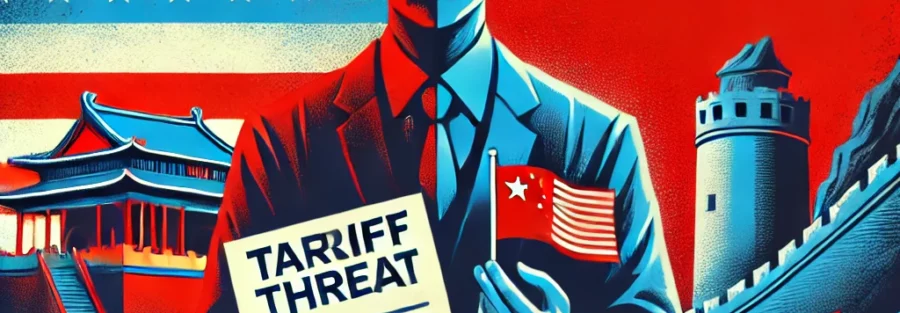China has criticized U.S. President-elect Donald Trump’s plans to impose additional tariffs on Chinese
goods as a response to fentanyl trafficking, accusing the incoming administration of shifting blame
for the U.S. opioid crisis. Trump, set to take office on January 20, announced his intention to
introduce a 10% tariff unless Beijing takes stronger action to curb the flow of chemicals used in
fentanyl production. During his campaign, he also suggested tariffs exceeding 60% on Chinese
imports.
He Yadong, a spokesperson for China’s commerce ministry, reaffirmed China’s opposition to
unilateral tariff hikes, stating that such measures will not address America’s internal challenges. He
called for adherence to World Trade Organization (WTO) regulations and for collaborative efforts to
maintain stable trade relations.
Trump’s tariff threats have sparked fears of a prolonged trade war, potentially more severe than the
one during his first term, which saw tariffs ranging from 7% to 25% and disruptions in global supply
chains. Howard Lutnick, a nominee for the Commerce Department, further inflamed tensions by
suggesting tariffs as high as 200%, accusing China of targeting the U.S. with fentanyl.
Chinese state media have warned that new tariffs could exacerbate tensions, with editorials
highlighting cooperative U.S. companies like Apple, Tesla, and Starbucks, urging U.S. politicians to
foster favorable business environments. Analysts suggest that while Beijing may initially avoid strong
retaliation due to its economic challenges, it could later respond if U.S. actions harm Chinese
commercial interests.
The previous U.S.-China trade war saw threats like the “Unreliable Entity List” targeting U.S.
companies, though China refrained from implementing it extensively. Experts anticipate collateral
damage if a new trade conflict arises, potentially impacting businesses on both sides.
Company
Services
Welcome to MyForexAdda, your trusted partner in navigating the world of foreign exchange. We provide a comprehensive suite of services designed to simplify your financial transactions, whether you’re traveling abroad or pursuing higher education.
Our Credentials
GST No: 05EAPPM9908A1ZJ
Udyam Registration No: UDYAM-UK-05-0073440
These registrations reflect our commitment to compliance and quality service in the financial sector.
Our Partnership
We are proud to be associated with Unipay, a leading money exchanger in the foreign exchange market as referral partner. This partnership ensures that our clients benefit from top-notch services and industry expertise.
Get Started Today!
Explore our services and discover how we can help you manage your finances effectively. For inquiries or to learn more, please contact us at support@myforexadda.com or Call Us: +91-8055557764
MyForexAdda – Your trusted partner in forex and finance!
Our Credentials
GST No: 05EAPPM9908A1ZJ
Udyam Registration No: UDYAM-UK-05-0073440
These registrations reflect our commitment to compliance and quality service in the financial sector.
Our Partnership
We are proud to be associated with Unipay, a leading money exchanger in the foreign exchange market as referral partner. This partnership ensures that our clients benefit from top-notch services and industry expertise.
Get Started Today!
Explore our services and discover how we can help you manage your finances effectively. For inquiries or to learn more, please contact us at support@myforexadda.com or Call Us: +91-8055557764
MyForexAdda – Your trusted partner in forex and finance!
2017-2024 © All rights reserved by My Forex Adda





